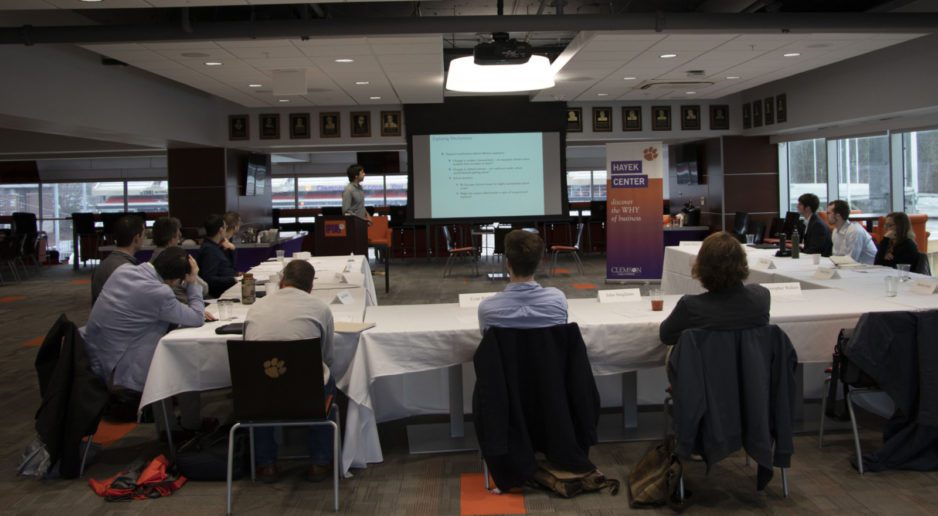Bio
With a background in economics that delves into microeconomics and socioeconomics, Jorge Luis García joined Clemson University in 2018. Examining economic policies and why the labor market locates talent the way it does, his research explores the capability of economic policies to increase equality, decrease crime and create long-lasting investing opportunities for the disadvantaged, along with policies that affect families for generations.
García’s work investigates working and single mothers and early childhood education in the United States. He studies how offering high-quality child care benefits not only children but also allows mothers, especially single mothers, to attain educational goals, enter the labor force and build a better career in the long term. For women in the labor force, many have to change their work trajectory when they have a child. García looks at how career pauses — to have or rear children — contribute to the gender wage gap and keep many women from achieving the same career milestones or levels as their male counterparts. Additionally, he looks at the way mothers approach the labor market and how it affects children who will encounter the labor market in the future.
In another research stream, García observes women in developing countries, how they enter the labor market and the effect of policies on women and their families. In rural India, the government created a policy designed to help women, granting them a constitutional right to have 100 days of minimum wage jobs. If jobs are not available, the government will pay an equivalent amount of money as unemployment insurance. While the government reserves half of the jobs for women, the cultural aspect of this policy does not encourage women, especially married women, to work. His work looks at whether or not the policy decreases the participation of women in the labor force and if this hurts their welfare.
In his brief career, García has published a book chapter, six peer-reviewed articles and one non-peer-reviewed article about early childhood education. He also has four co-authored papers under review, two at top-five journals in economics.
In May 2021, the White House cited his work when the Biden administration announced the American Families Plan. In fall 2021, he was named a Powers Emerging Fellow, which recognizes performance excellence in teaching, research and academic service at Clemson. In 2019, he became a Hayek Center for the Business of Prosperity Fellow at Clemson.
Since 2018, García has been a nonresident fellow at the Schaeffer Center for Health Policy and Economics at the University of Southern California and will be until 2023. In May 2019, he was a senior visiting fellow at briq Institute on Behavior and Inequality and a visiting research fellow at the Social Science Research Institute at Duke University from 2018-2020. Since 2017, he has been a member of the Early Childhood Interventions Network in the Human Capital and Economic Opportunity Global Working Group.
García has been an invited speaker at several conferences, including the Harvard Kennedy School, University of Zurich and Chicago Econ. In 2021, he became an associate editor of the Journal of Human Capital. He started his research career at the University of Chicago and began teaching at Clemson. He has already received over 10 awards, fellowships and grants. His Ph.D. adviser, James Heckman, won the Nobel Prize in 2000.




